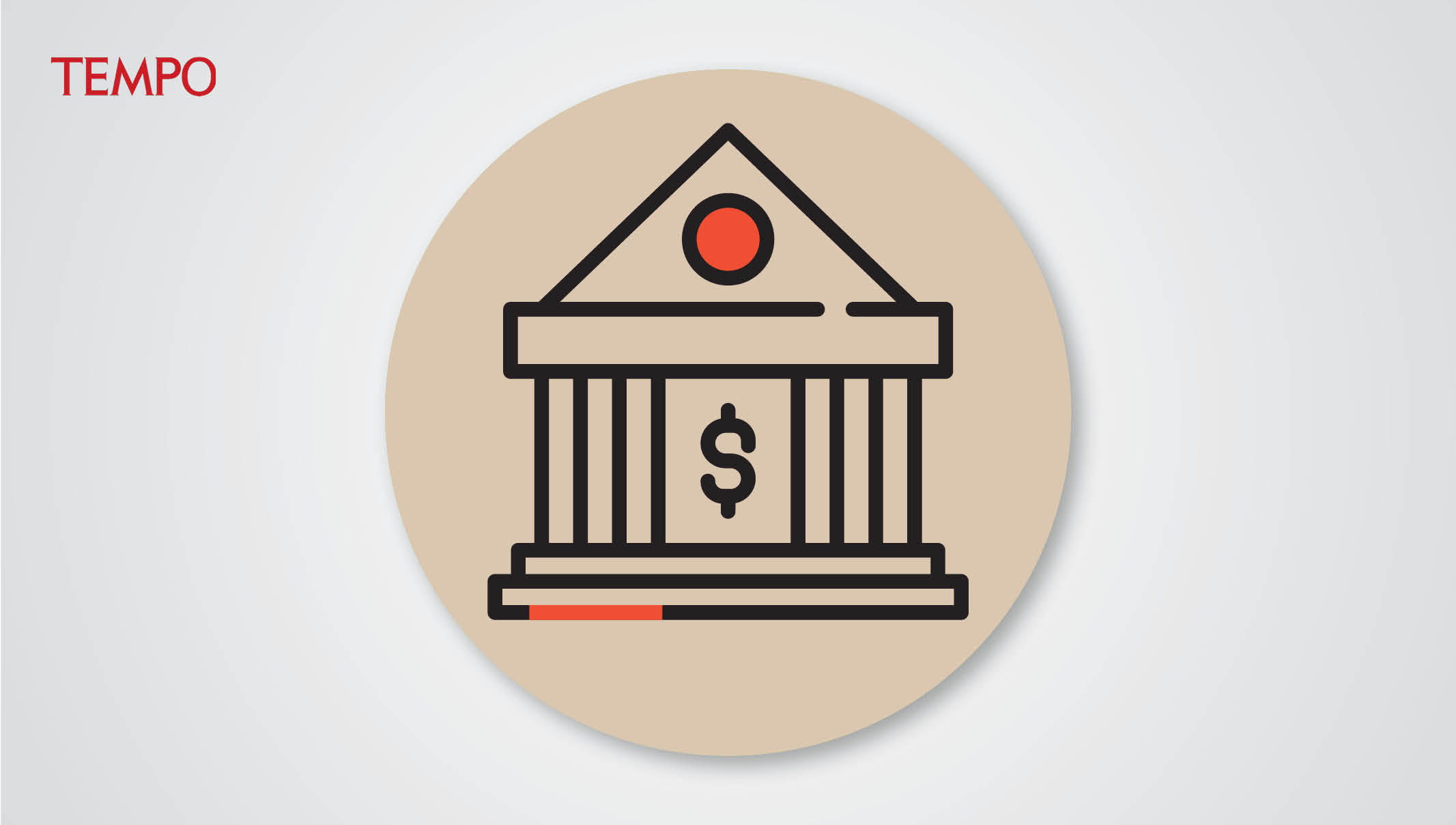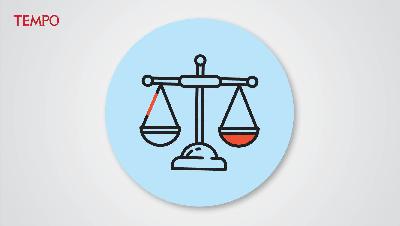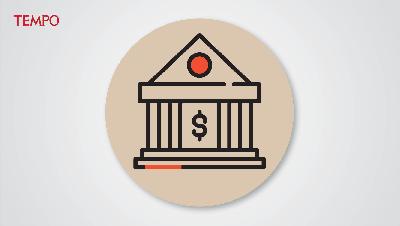The Warning of a Banking Crisis
Monday, May 6, 2024
The OJK releases a new regulation obliging banks to increase their capital. This anticipates a threat to the banking sector as a result of volatile geopolitics.
arsip tempo : 174464653823.

REGULATION No. 5/2024 on the Determination of the Status of Supervision and Handling of Problems of Commercial Banks was issued by the Financial Services Authority (OJK) as we face the rising threat of a banking crisis as a result of fall in the value of the rupiah. The exchange rate of the rupiah to the United States dollar has reached 16,272—surpassing a psychological level and approaching the lowest level that it achieved during the 1998 monetary crisis of 16,800.
The impacts were felt immediately. Since the Stock Exchange reopened after the 2024 Idul Fitri holiday, the prices of major bank stocks have been in decline. On the first trading day of May, for example, the Joint Stock Exchange Index fell 1.61 percent to 7,117.42. Two of the biggest falls in the LQ45—the shares of 45 selected companies with good liquidity—were experienced by Mandiri and Bank Negara Indonesia, namely 8.33 percent and 8 percent.
This turmoil was the result of global macroeconomics. The United States has continued to face high inflation, far above market expectations and the target set by the Fed of 2 percent. As a result, it is difficult to hope that the Fed will reduce interest rates. Matters were made worse by heightening tensions in the Middle East between Israel and Iran.
It is true that the results of stress tests on the banking situation carried out by the OJK show that the weakening of the rupiah has not had a significant effect on bank capital. One reason for this is the good net foreign exchange position—the difference between foreign currency assets and foreign currency liabilities divided by capital—of national banks is still only 1 to 5 percent, far below the 20 percent limit set by Bank Indonesia.
As a result, OJK Regulation No. 5/2024 is intended more as a yellow light to make the banking sector aware that the economic situation is dire. One message could be that now is not the time to flood the market with more credit.
Conversely, the authority has asked banks to increase the size of their buffers to anticipate a crisis in the form of capital surcharges or additional capital to 1 to 1.35 percent of weighted assets. As an illustration, the group of banks that based on core capital are categorized as KBMI I, the lowest level, must have core capital of Rp6 trillion before the issuing of this regulation.
This latest OJK regulation is, of course, a burden on small banks. But this is the method used by the OJK, and also Bank Indonesia, to strengthen the national banking system. Indonesia now has 105 conventional and sharia banks. Although this number has declined since the 1988 monetary crisis—when there were 237 banks—it is still too high.
The Indonesian banking system would be stronger if it were supported by a number of large strong banks, rather than many small-scale banks. The fact is that half of the assets of the national banking system are held by the four banks at the top level, KBMI IV, namely Mandiri, BNI, Bank Rakyat Indonesia and Bank Central Asia.
If the medium and small banks are not able to increase their capital, the OJK should ask them to be ready for an acquisition or merge with others. The problem is that outside the state-owned banking sector, it is not easy to combine two business entities with different owners. The plan to merge MNC Bank owned by Hary Tanoesoedibjo with Nobu Bank owned by James Riady, has not gone ahead despite reports of it circulating for the last two years.
The owners of these banks need to realize the need for consolidation is becoming more urgent, because outside the stress tests conducted by the OJK, there is a major threat to the Indonesian banking system, namely the placement of assets in bonds. At present, the largest holders of state securities are the banks. The amount is Rp7,180 trillion or 88.6 percent of the total national debt. These securities are also vulnerable to global economic conditions. If there is instability, there are concerns that banks in Indonesia could be hit by a crisis.











